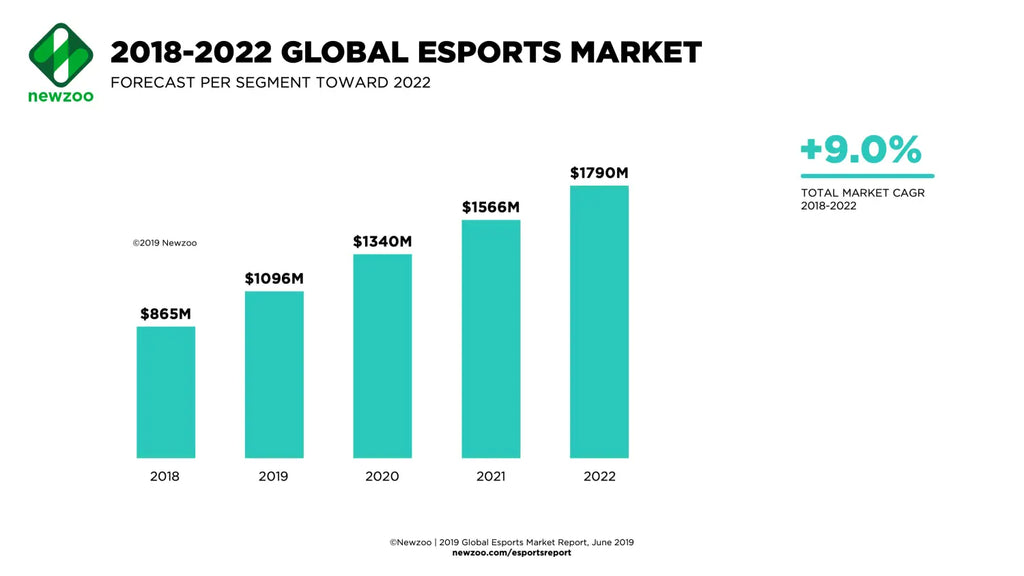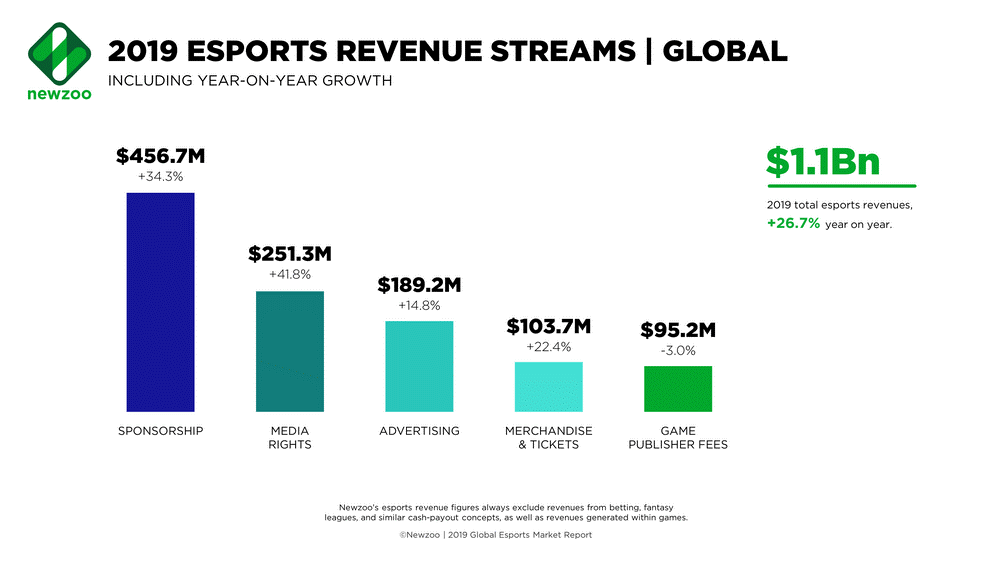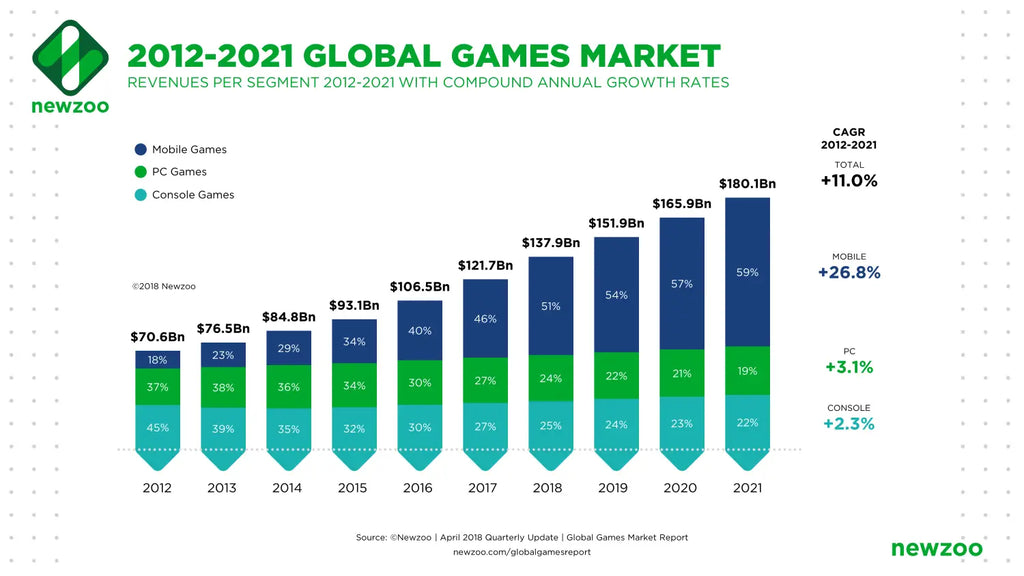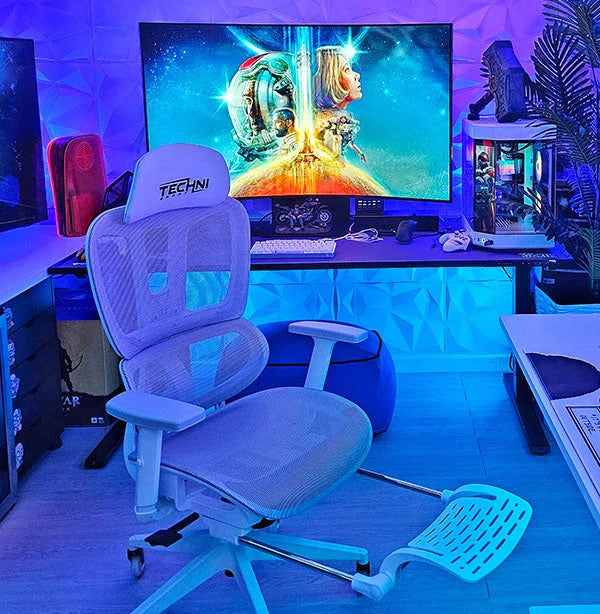Why Should You Become a Professional Gamer
Reasons to become a pro gamer today
People always go on about how you should do what you love and love what you do. While this is certainly a privilege that not everyone gets to have, professional gamers are one of the lucky few.
Gone are the days when video games were just a side hobby. With all the million-dollar prize pools, sponsorships, and opportunities for exposure, it has become one of the most highly coveted careers in the job market today. In fact, it’s not any less common than wanting to be a professional athlete — and it might even be more attainable than that.
Still, need the extra push? Let’s take a look at more reasons why you should pursue a career in gaming.
Esports is big business.
There's just no way around it: esports is big money. According to gaming analytics firm Newzoo, the industry just managed to hit its $1 billion milestones just last year, and the numbers only keep getting bigger. By 2022, the revenues will have nearly doubled, reaching just a little under $1.8 billion.

(Image Credit: Newzoo)
So where does the money come from? Just like video bloggers and influencers, it's heavily reliant on their audience. As of 2019, Chron reports that esports tournaments now garner around 70 million viewers worldwide (way more than television), so it's no surprise that the industry has been attracting a lot of wealthy investors.

(Image Credit: Newzoo)
In fact, the same Newzoo report from before notes how the highest-grossing individual esports revenue stream worldwide comes from sponsorship, which generated $456.7 million, followed by media rights ($251.3 million), and advertising ($189.2 million).
Virtually anybody can build a professional gaming career.
Professional gaming doesn’t have prerequisites as long as you can play skillfully. Take your cue from 16-year-old Kyle Giersdorf, the Fortnite World Cup champion who took home a whopping $3 million home as prize money. It's a feat that not many people—much less, teens—get to do in their lifetime. Nonetheless, Giersdorf proves that esports knows no age, race, or gender. However, one doesn't just sign themselves up for competitive gaming. You have to have the right equipment, study your chosen game's tactics and techniques, and even sign yourself up for some coaching. As much money that esports generates, it's a hard thing to get into.
A much more achievable way of earning money is by hosting live streams. In fact, many professionals start (and sustain) their careers as streamers, as we’ve discussed in ‘How to become a pro gamer in 2020’. Much like how esports thrives on the perks of having a large viewership, streamers earn their keep by having a decent following. Twitch streamer Jeremy “DisguisedToast” Wang gives a breakdown of exactly how much he makes via live streams—an average of $20,000 per month—and used that as basis as to how much streamers can earn. Note that Wang has over 800,000 followers on Twitch and 10,000 concurrent viewers in his streams, so don't expect to immediately start earning as much as he does.
How much can I earn by streaming?

(Credit: Dextero, Image of Jeremy Wang AKA DisguisedToast)
According to Wang, streamers earn money in four ways: donations from their fans, paid subscriptions, ad revenue and, finally, sponsorships. The first two are a bit inconsistent since not everyone is willing to donate, and viewers don't always have to pay to subscribe to your channel. However, they do get you big money the quickest. In comparison, ad revenue earns streamers less money and at a consistent rate. On average, streamers earn around $0.25 to $1.50 per 1,000 views, depending on your following. Ads automatically appear at the beginning of your stream, and then you have the option to feature more during the stream itself. Be warned that the latter is a bit discouraged since too many ads can turn viewers off.
At the end of the day, what really keeps streamers alive is the money they get from sponsorships, much like esports. If you've managed to build a decent viewership—which, according to Wang, is averaging on at least 500 views per stream—marketers will start approaching you for offers. Sponsorships can earn you anywhere from one cent to $1 per viewer by the hour. So, someone like Wang (who averages at 10,000 viewers) can earn between $1,000 to $10,000 per hour, depending on the game he’s playing.
Remember that Wang and other popular streamers started their careers from the ground up. So if you're serious about pursuing a career in gaming, live streaming is a good place to start.
Games are never going to die.
At the rate it's going, the gaming industry isn't going to die down anytime soon. From new hardware and platforms to innovative graphics and gameplay, no two years are the same in the industry. The latest Global Games Market Report informs how gamers spent more than $152.9 billion in 2019, which is 9.6% more than the revenue two years ago.

(Newzoo)
The way consumers engage with and through games is constantly changing too. While mobile games continue to be the largest contributor ($68.5 billion), console games saw the most growth—a 13.4% increase compared to mobile gaming's 10.2%.

(Newzoo)
Not only does this result in more overall engagement, but it also leads to entirely new segments of game enthusiasts. It’s what keeps people—both gamers and enthusiasts—from getting bored.
In conclusion, since more and more people are openly supporting the profession, the number of players who want in is only going to increase too. And since the industry is getting larger, it’s going to attract even more innovators, sponsors, investors, and more. So long as there are people who play and platforms to play on, it’ll never truly go out of business.
So, why should you become a professional gamer? Well, the most prudent question here is, why shouldn't you? The industry is thriving, the opportunities are within reach, but most of all, gaming is your passion.
Specially written for technisportusa.com
By Bench.J




















